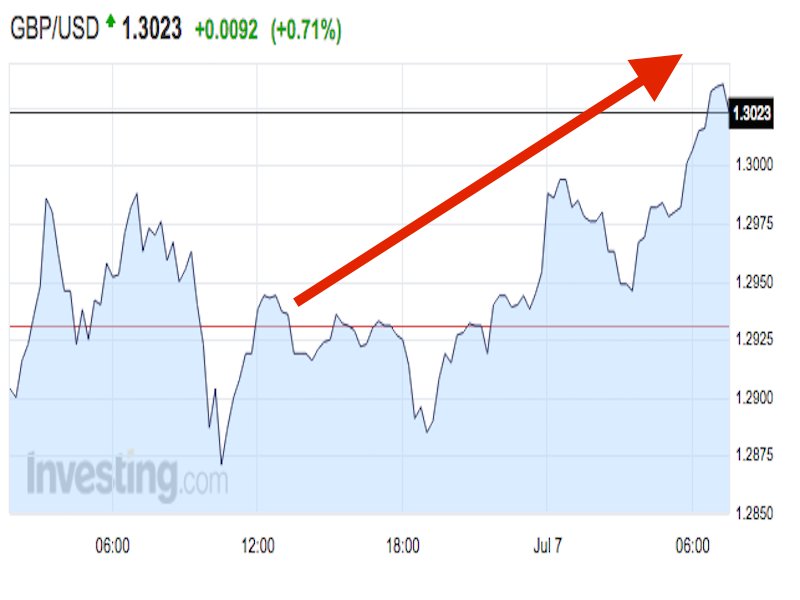Good morning!
The British pound is catching its breath after non-stop hemorrhaging over the last two weeks post-Brexit.
The currency is up by 0.7% at 1.3025 against the dollar as of 7:42 a.m. ET following some better-than-expected data.
Manufacturing production in the UK fell by 0.5% month-over-month in May, better than economists' forecasts of a 1.0% drop, and rose by 1.7% year-over-year, above expectations of a 0.7% increase.
Moreover, industrial production fell by 0.5% month-over-month in May, better than the forecasted 1.0% drop, and the Halifax House Price Index rose 1.3% month-over-month in June, above expectations of a 0.4% increase.
However, in a recent note to clients, Deutsche Bank (DE:DBKGn)'s George Saravelos argued that the pound could go lower — much lower.
As for the rest of the world, here's the scoreboard:
- The euro is weaker by 0.2% at 1.1077 against the dollar. Earlier in the morning, German industrial production disappointed, falling 1.3% month-over-month in May, below expectations of a 0.1% drop. In other Europe news, Consob, Italy's Securities and Exchange Commission, says it has implemented a short-selling ban on shares of Monte dei Paschi di Siena, the world's oldest bank.
- The Japanese yen is stronger by 0.3% at 101.06 per dollar. Notably, Reuters' Minami Funakoshi reports that senior Japanese officials will meet to discuss "global market developments" on Friday, and that former Fed Chair Ben Bernanke will be meeting with Prime Minster Shinzo Abe and other officials next week.
- The Australian dollar is little changed at .7512 after the S&P placed its "AAA" rating for Australia on "credit watch negative," meaning the country is at a heightened risk of losing its pristine rating.
- The US dollar index is little changed at 96.07 ahead of several data points. ADP Employment Change and initial claims will be released at 8:15 a.m. ET and 8:30 a.m. ET.
